Tayo Adeoye, Field Engineer, Honeywell UOP
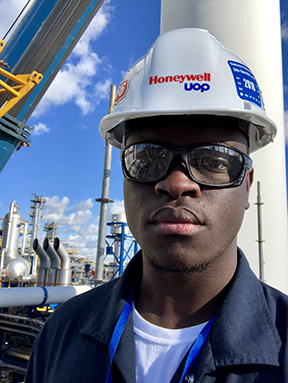 Degree: CS, Chemical Engineering
Degree: CS, Chemical Engineering
Current Role & Typical Day: Honeywell UOP develops and provides technology to oil & gas companies, globally. Once the technology package, refining equipment, or adsorbent/catalyst has been delivered to the customer site, my role as a field service engineer is to go down to the customers' refinery where ever in the world the refinery is located. Upon arrival, typically I have one or more tasks to achieves. My tasks include, but are not limited to starting up the process unit, troubleshooting, and optimizing.
I love my role because I get to travel, as well as work in multiple oil & gas refineries globally. My travel assignments are typically spanning anywhere from 3 to 21 days. It provides a very unique experience for recent undergraduates, and you learn a great deal - with all the hands-on - process, controls, and instrumentation engineering projects.
Website to learn about this field: https://www.honeywell.com/oil-and-gas https://www.uop.com
Xavier Barry, Quality Control Analyst, Ingredion
Degree: BS, Chemistry
Current Role and Typical Day: As a Quality Control Analyst, I am responsible for testing and ensuring safety and quality of an Active Pharmaceutical Ingredient (API) which is in 90% of the worlds IV bags
Jennifer Behrens, Chemical Engineer, Honeywell UOP
Degree: BS, Chemical Engineering
Current Role and Typical Day: As a Chemical Engineer in the Career Development Program, I will undergo three six month rotations for 1.5 years and then become a Field Engineer for 3 to 5 years with international travel. After the CDP training, the Field Engineer role involves travelling to customer sights to inspect, start up, and troubleshoot UOP-licensed process units with the opportunity to become a Chief Field Engineer.
Websites to learn about this field: https://careers.honeywell.com/us/en/job/P-100002/UOP-Career-Development-Program-Chemical-Engineer
Casey Fee, Project Technical Consultant, TRICORD Consulting
Degree: BS, Chemical Engineering
Current Role and Typical Day: Casey works at Trident Seafoods in Seattle, WA as an Environmental Compliance Specialist. In this new job, she will be pairing her engineering back ground with her compliance knowledge to make sure the Trident processing sites are compliant in the lower 48, as well as, in remote locations on the Aleutian Islands in Alaska.
Websites to learn about this field: https://www.epa.gov/laws-regulations/regulations
Jim Hauske, Sensor Pharmaceuticals
Degree: PhD, Organic Chemistry
Current role and typical day: President & CSO; Sensor Botanicals, LLC. I have dual roles as President and Founder at Sensor and Sensor Antibacterials. My R&D responsibility is leader of the virtual drug discovery and development organization focused upon molecules affecting the nexus of inflammation and metabolic disease, as well as treatment approaches to resistant bacterial infections. Additionally, I spend a good deal of time attempting to obtain capital to support R&D. Funding for Sensor was achieved by approaching organizations established to provide grant money to drug discovery enterprises searching for new disease treatments for specific disease states. This level of funding was fully leveraged and resulted in discovery of a patent-protected drug discovery technology platform creating the basis of a stand-alone spin-out organization, Sensor Botanicals, LLC. Sensor Botanicals, LLC was recently purchased by Diamond Hemp, Inc.
Monday and Friday effectively follow the same basic schedule, which starts early morning calls [now mostly Zoom meetings] from academic and CRO collaborations we have established to conduct our research and development programs. Monday and Friday have very early starts, since I have many long-term business relationships with organizations based in the UK, East Coast US, and Singapore. Given the fact I'm based in San Diego, I need to start my day with my European colleagues and end it with my Singapore colleagues.
In contrast, Tuesday, Wednesday, and Thursday are focused entirely on internal data reviews, new program proposals, status of IP creation, and raising capital. The great constant in starting [and maintaining] a new company is need for more capital. There are various potential sources of capital and each source-type requires a specific approach. It's important to accept this as fact, since this will improve the chances the capital source will be attentive for the entire 60-seconds they share with you.
Saturday and Sunday I'm always available to take calls and/or emails requiring immediate attention; however, I spend most of the weekend reading, running errands, and landscaping various areas of my yard/property. I first finish reading any of the week's literature, which I had not completed during the week. I electronically access the world's literature with particular emphasis on biology/pharmacology, disease state, therapeutic, fermentation/biosynthesis, virtual screening/AI, drug discovery, and human clinical trial publications. Over the past 20-years I've spent far more time reading pharmacology and disease-focused publications, rather than chemistry-centric journals.
I also read, more accurately "scan," a fair amount of AI-related literature. I learned to write code about 15-years ago and continue to expand my coding proficiency [it's worth noting during my PhD I was able to take some computer courses. I believe one was official-I was officially on the class roster; whereas two others I simply sat-in. I bought the text books, did the assignments, used the card punch late hours, took-up CPU time, and even took the exams. I did not turn-in the exams for the "sat-in" courses, since the TA's likely would not have been appreciative had I done so! By the way, very little programming I learned then has any relevance to today's programming languages; however, I was not intimidated by the thought of learning to code. This is a direct product of my time at the university].
My initial motivation to write code was practical. I sought to save much of the capital expense associated with purchasing many [I have purchased database packages] of the commercially available software packages I required. In practice, I ultimately created a highly effective, integrated virtual drug discovery platform not only producing very good lead structures, but also revealing previously unknown networks of molecular targets related to several disease states with unmet medical need, or non-responding patient subpopulations. At the very least, I doubt I would have discovered leads of equivalent quality, if I did not invest the time learning to code. Additionally, the molecular target networks I alluded to would not have been discovered. at least they would not have been discovered by me!
After I complete the week's "professional" reading, I read for pleasure. I read mostly history and biography, although I read anything related to bronze-age ["age of the heroes'], or the Greek and Roman myths and legends. It has always amused me to think about the descriptions in Homer and Virgil of mortals "cloaked in clouds by the gods" to enable the mortal to walk "unobserved" through the front gate of wherever. Must have been a lot of clouds walking around town back then! I still play touch football and hardball, although the guys in the leagues I participate are relatively old. So, not exactly a scintillating competition is displayed. Still, I'm able to do a couple of things I have done literally from childhood.
Websites to learn more about this field: I suggest one simply Google "Drug Discovery," "Human Diseases With Unmet Medical Need," or "Gut-Brain Disease Axis."
Ryan Hoffman, Associate Consultant, Veeva Systems
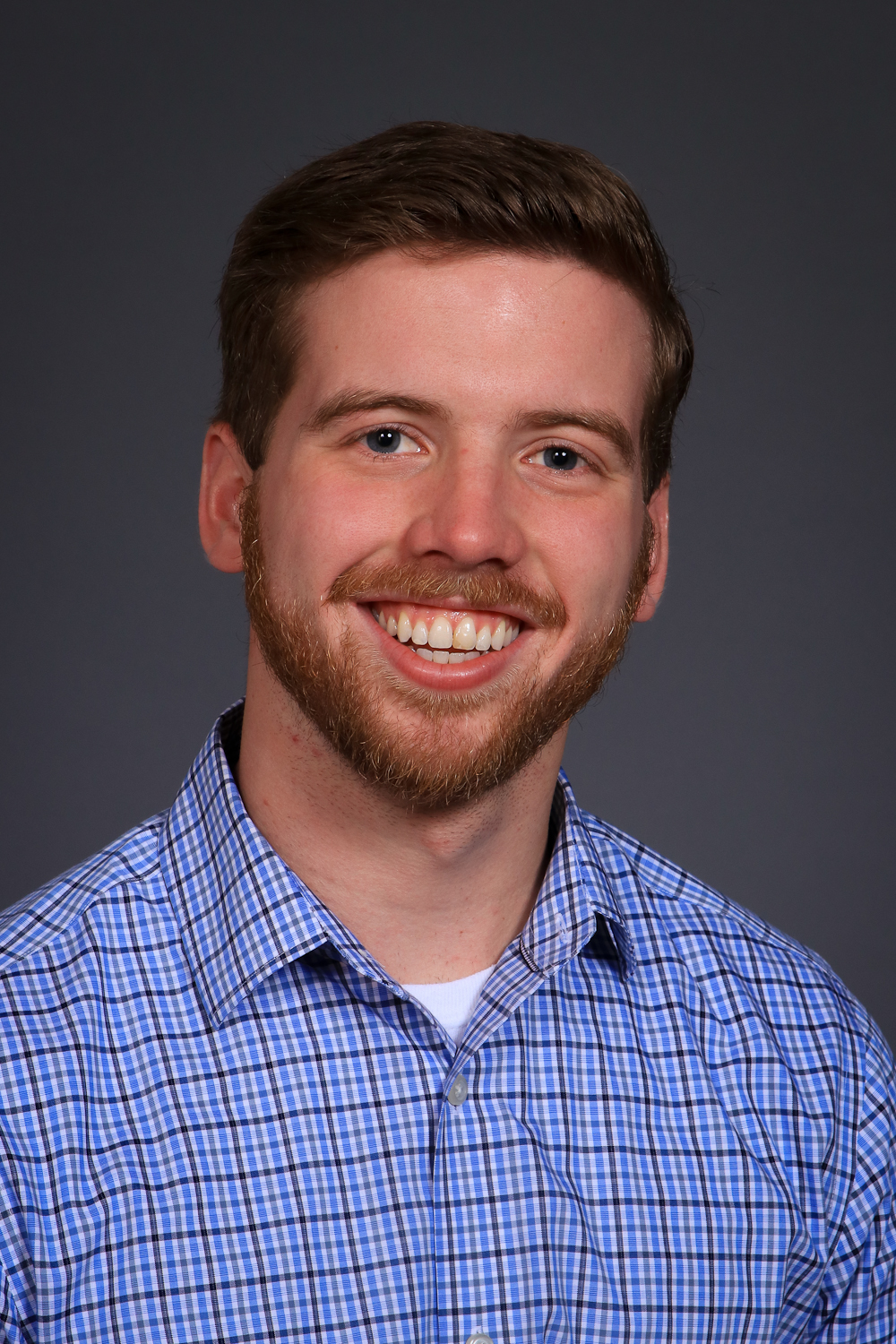 Degree: BS, Chemistry
Degree: BS, Chemistry
Current Role and a Typical Day: I work as a member of a team to configure, implement, and deploy Veeva's cloud-based software for pharmaceutical companies. This requires me to gather requirements from customers, find a solution, and provide this solution back to the customer. My daily work consists of making customization changes in the software for the customer, conducting meetings to understand customer requests and issues, and developing training materials to help the customer teach their employees on the software. Since each customer is different in their requirements, every day is new and exciting! Each customer is like a new puzzle to figure out, and on top of it, I get to work from home and travel 30% of my time!
Websites to learn about this field: https://www.veeva.com/; https://www.biospace.com/
Richard J. Lazarus, Howard J. & Katherine W. Aibel Professor of Law, Harvard Law School
Degree: B.S. Chemistry, B.A. Economics, University of Illinois (1976); JD Harvard Law School (1979)
Current Role and Typical Day: I teach and write legal scholarship related to both environmental law and the U.S. Supreme Court. I have published dozens of law review articles and several major books on these issues. I have also represented parties before the Supreme Court in more than forty cases and presented oral argument in fourteen of those cases. Although I have been a law professor for most of my career, I also worked for about eight years, at various times, at the U.S. Department of Justice, and I served as Executive Director of the Presidential Commission established by President Obama to investigate the root causes of the 2010 Gulf Oil Spill. I most recently served on President Biden's Transition Team for the U.S. Department of Justice. My most recent book, The Rule of Five (2020) tells the story of the most important environmental law case ever decided by the United States Supreme Court. In a typical day, I teach my law students, work on legal scholarship, and provide pro bono legal assistance to environmental public interest organizations related to pending litigation. I was born and raised in Urbana, Illinois.
Websites to learn about this field: https://www.eli.org/ and https://eelp.law.harvard.edu/.
Ellery Marks, Quality Engineer, General Mills
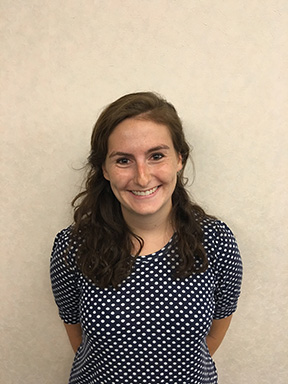 Degree: BS, Chemical Engineering
Degree: BS, Chemical Engineering
Current Role and a Typical Day: Ensure the food safety and product quality of all products made at the General Mills facility in Milwaukee, WI, where we make salty snacks. Ownership of all food safety and quality programs associated with the packaging systems, as well as improving our weight control and specification compliance programs.
Websites to learn about this field: https://asq.org/, https://www.mygfsi.com/
Dr. Stephen Miller, Retired Principal Advisor at Chevron Phillips
Dr. Stephen Miller was promoted in 2013 to Principal Advisor in Chevron Energy Technology Company, the highest technical level in the company. He was named a Chevron Fellow in 2002 in recognition of numerous significant technical advances in the area of catalysis R&D for applications in refining and chemicals. He has over 250 US patents, primarily on catalysts and catalytic processes, in such diverse areas as lubricants hydroprocessing, biolubricants synthesis, catalytic cracking, olefin polymerization, reforming, zeolite synthesis, gas separations, and a number of petrochemical processes.
Steve is the inventor of Chevron’s Isodewaxing Technology, first commercialized at the Richmond refinery in 1993, and now used worldwide to produce premium lubricating base oils. The development of this process has received a number of awards, including being named a finalist for the Kirkpatrick Award for Excellence in Chemical Engineering in 1995.
More recently, Steve developed and managed Chevron’s Advanced Lubricant Program, which was aimed at developing the next generation of advanced lubricants for transportation and industrial use, including from renewable feedstocks. He also developed and managed the Energy Technology Company’s Innovation Program to foster internal innovation through both funding and mentoring.
In addition to his technical contributions, Steve also took the lead in organizing collaborative programs which leverage Chevron resources with outside companies, universities, and government labs. Two of these programs received Advanced Technology Program (ATP) awards sponsored by the U.S. Department of Commerce to bring new, innovative technologies to commercial readiness.
Dr. Miller received his PhD in chemistry from the University of Illinois, and joined Chevron’s Exploratory Research Group in 1974. He retired from the company in 2016. Department of Chemistry news article.
Gunjan Nachane, Manufacturing Engineering Associate, General Mills (Yoplait)
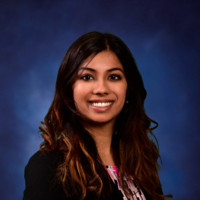 Degree: BS, Chemical Engineering
Degree: BS, Chemical Engineering
Current Role and Typical Day: I am in a 2-year manufacturing engineering rotation program within General Mills, currently in my Systems Engineer/Process Lead role. I typically start off the day pulling data to piece together the top losses from the day prior. I then put together a plan to address these top losses based on information from the data and operator feedback. On days where there is not a significant top loss, I pull in any long-term projects I have to improve line reliability.
Websites to learn about this field: https://careers.generalmills.com/job/10003430/manufacturing-engineering-associate-us-nationwide/#tab-id-2
Kristin Nuzzio, Senior Research Chemist, PPG
Degree: PhD, Physical Chemistry
Current Role and Typical Day: I joined PPG in 2015 as a Research Chemist in the Analytical Department focusing on spectroscopic characterization of Aerospace and Industrial coatings. Since then, I have held several roles in the Analytical Department as the Team Leader for the Wet Chemistry, Chromatography, and Regulatory groups. Most recently as a Team Leader, I coordinated global regulatory testing initiatives and raw material approval projects. I have also been a member of the American Chemical Society's National Younger Chemists Committee for the past six years and served as the Subcommittee Chair for Governance, Interface and Outreach, and Membership Engagement. A typical day at work for me consists of leading meetings with cross-functional teams, communicating results to internal customers, and mentoring direct reports on technical projects.I joined PPG in 2015 as a Research Chemist in the Analytical Department focusing on spectroscopic characterization of Aerospace and Industrial coatings. Since then, I have held several roles in the Analytical Department as the Team Leader for the Wet Chemistry, Chromatography, and Regulatory groups. Most recently as a Team Leader, I coordinated global regulatory testing initiatives and raw material approval projects. I have also been a member of the American Chemical Society's National Younger Chemists Committee for the past six years and served as the Subcommittee Chair for Governance, Interface and Outreach, and Membership Engagement. A typical day at work for me consists of leading meetings with cross-functional teams, communicating results to internal customers, and mentoring direct reports on technical projects.
Brendan Schedler, Manufacturing Chemical Engineer, GE Healthcare
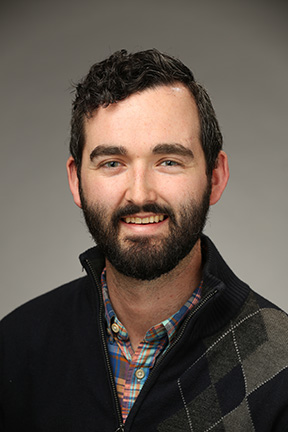 Degree: BS, Chemical Engineering
Degree: BS, Chemical Engineering
Current Role and Typical Day: Currently tasked with aiding manufacturing to ensure production runs smoothly. Help out with day to day issues with manufacturing, trying to solve issues to get product out the door. Also have been working on long term process optimization projects, automation projects (robots, automated systems), and new product releases. I am the only chemical engineer at a radio pharmaceutical plant, so leadership relies heavily on me for any chemistry related issues.
Websites to learn about this field: https://www.aiche.org/, https://cheme.stanford.edu/admissions/undergraduate/what-chemical-engineering
Mac Schlicher, Operations Engineer II, Sherwin Williams
Degree: BS, Chemical Engineering
Current Role and Typical Day: I am the site manager for our $2,000,000 capital budget. This involves designing, managing, and commissioning various improvements to my polymer manufacturing site. Improvements include significant process changes to increase site's production capacity, automation, electrical upgrades, environmental, and many more!
Christopher Paul Shelton, Field Engineer, UOP
Degree: BS, Chemical Engineering
Current Role and Typical Day: I work as a field engineer for UOP. I assist in the checkout, commissioning, inspection, loading, startup, unloading, reload, and regeneration of various refining, petrochemical, and offshore process units globally. I travel full time, both domestically and globally. Specifically, I work with both fixed-bed and CCR platforming units, which generate high octane gasoline and aromatic precursors such as benzene, toluene, and xylene for aromatics processing, as well as hydroprocessing units that both crack and remove sulfur and nitrogen from heavy feedstocks such as vacuum gas oil, as well as light end gas processing offshore including Separex CO2 removal membranes and molecular sieve gas dehydration units that remove water from natural gas.
I do a variety of work, so I don't have a typical day. My day may consist of just supervising blue collar Brazilian workers in the installation of membranes, which gives me a great opportunity to work on my Portuguese. It may be just entering a reactor and inspecting for general cleanliness, taking many pictures and seeing if there are any dire issues that need to be resolved during a short turnaround at a refinery. Sometimes I work just doing piping checkout, comparing the as built refinery against the piping P&ID's by the contractor who is building the site. Some days just involve catching up on administrative work like expense reports, email, and writing memos and reports. It all depends on the project that I have been assigned to. I also have days where the entire day is just traveling to or from a site - unfortunately, there's still no really quick way to get from the US to South Africa, as just one example.
Websites to learn about this field: https://www.api.org/
Nora Yanahan, Food Safety Product Line Support Chemist, Cargill
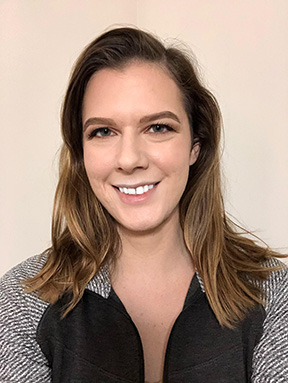 Degree: BS, Chemistry
Degree: BS, Chemistry
Current Role and Typical Day: I work in a facility that produces corn syrup, high fructose corn syrup, and animal feed. I am responsible for ensuring our facility, products, and food safety management systems meet or exceed customer requirements for quality and food safety. Part of my day-to-day is monitoring and management of the sanitation program for facility. We do microbiological testing to verify our prerequisite programs are working and keeping our food safe. I work with contracted pest control and sanitation chemical vendor companies daily and am involved in internal, customer, and certification audits. Additionally, if any food safety concerns come up during the day or night (foreign material in a truck of corn syrup...problems with critical equipment...) we jump into action to respond. It definitely keeps me busy! If you have any questions about the field, working as a chemist in an industrial setting for the past 2.5 years, or the company, feel free to reach out!
Websites to learn about this field: https://www.cargill.com/
Yifu Zhang, Consultant, Bain & Company
Degree: BS, Chemical Engineering
Current Role and Typical Day: Working as a consultant at a management consulting firm helping clients particularly in tech and pharma industries with long term business strategies (e.g., new product releases, 5-10 year roadmap, etc.). Working with C-suite executives on overall strategy for company.
Websites to learn about this field: https://www.bain.com/careers/what-is-management-consulting/